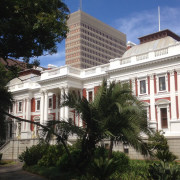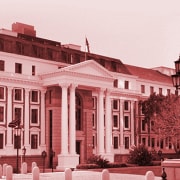|
Getting your Trinity Audio player ready...
|
The International Day of Parliamentarism (IDP) is celebrated every year on 30 June, to commemorate the day in 1889 on which the Inter-Parliamentary Union (IPU) was founded – this is the global organisation of national parliaments, of which South Africa is a member. Currently the IPU comprises 178 national member parliaments and 14 regional parliamentary bodies.
The IDP was established in 2018 through a UN General Assembly Resolution. Its aim is to review the progress that parliaments have made in achieving some key goals to be more representative and move with the times, including carrying out self-assessments, working to include more women and young MPs, and adapting to new technologies.
Instituting an international day for parliaments is particularly important at this critical time for parliamentary democracy, says the IPU. “If democracy is to thrive, then parliaments, as the cornerstone of functioning democracies, need to be strong, transparent, accountable and representative.”
The organisation notes that people are losing trust in political institutions and democracy itself is facing challenges from populist and nationalist movements. “There is good and bad news on this world parliament day,” says IPU secretary-general Martin Chungong. “It’s encouraging to see that parliaments have never been so female and so young. However, we are also seeing democratic backsliding in many countries and parliaments increasingly coming under assault in the process. We are convinced that the more representative and diverse a parliament, the stronger and more resilient it will be for the future.”
This year’s theme is Public engagement in parliaments, and it follows on from the recent launch of the IPU’s global parliamentary report on Public engagement in the work of Parliament.
Public engagement is crucial for the work of Parliament, says the Global Organization of Parliamentarians Against Corruption (GOPAC) in a statement released today. “As the representative of the people, it is ideal for parliamentarians to engage with the citizens in every area of parliamentary work. An engaged and vibrant public will help parliament to better exercise their duties of law-making, budget preparation, and oversight agenda. It is also a significant tool to combat corruption.”
GOPAC is an NGO made up of parliamentarians from across the world, working together specifically to combat corruption, strengthen good government, and uphold the rule of law.
“On this year’s International Day of Parliamentarism, GOPAC urges fellow members and parliamentarians to advocate for a more open parliament. From this day forward, parliamentarians should collaborate and work hand-in-hand with the community to attain parliaments who are responsive, participatory, and inclusive for the benefit of the people.”
Public engagement and transparency
The UN agrees, saying that public engagement is important because the decisions of parliaments have a significant affect on initiatives to build a better future for all. Involving the community in decision-making through effective public engagement can help ensure that parliaments respond in ways that meet people’s expectations and aspirations. Better parliamentary engagement with the public will also help to rebuild trust in governance.
“In democratic countries such as South Africa … members of Parliament are elected to represent the people of the country. They also act as the voice of the people. Parliament, therefore, is accountable to the people of South Africa,” according to Parliament itself.
South Africa’s Parliament already has numerous processes in place that allow the public to participate. These include public interviews during appointments of top leaders, the participation of the public in vetting candidates for such positions, accepting submissions and comments on important pieces of legislation, and publicly accessible records of committee meetings.
Like several other organisations, Corruption Watch contributes substantially to legislation amendments which relate to its work, appointment processes, and more. The organisation has had some success in making recommendations for transparent leadership appointments, many of which have been viewed favourably by parliamentary committees.
What parliaments do
Strong parliaments are a cornerstone of democracy. They represent the voice of the people, pass laws, allocate funds to implement laws and policies, and hold governments to account. They work to make sure that policies benefit all people, especially the most vulnerable.
Parliaments also link international and national agendas, ensuring that governments implement international treaties and agreements that they sign up to. They play a vital role in implementing the 2030 Agenda for Sustainable Development, and the IPU has been working closely with them to help build their capacity in doing so.
In countries emerging from conflict, robust parliaments can help make possible a peaceful transition to a functioning democracy by healing divisions in society through dialogue and co”-operation.








